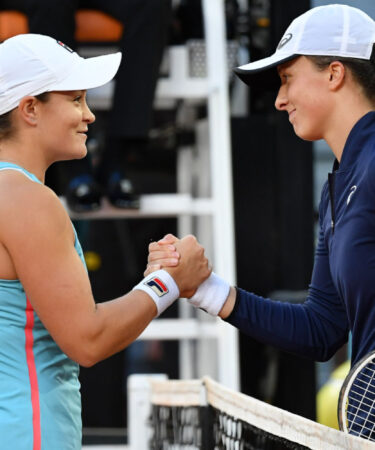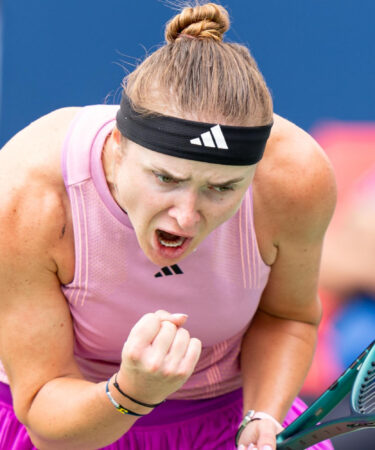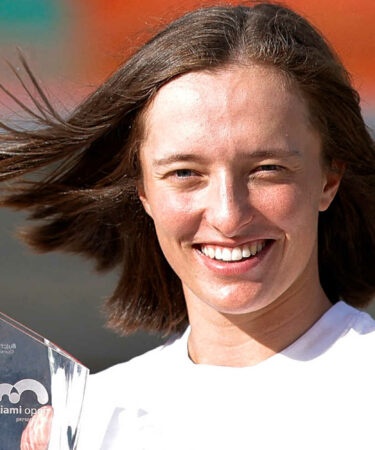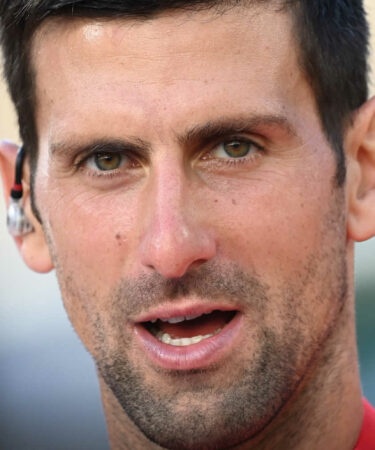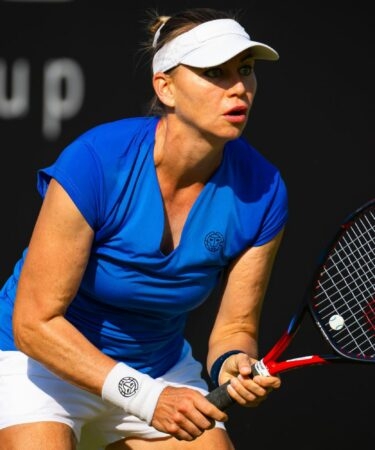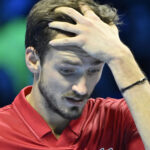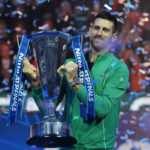Why the Olympics means so much, to some
At the height of the Cold War, Communist countries used sport to create status. It’s a link that remains strong for tennis players today
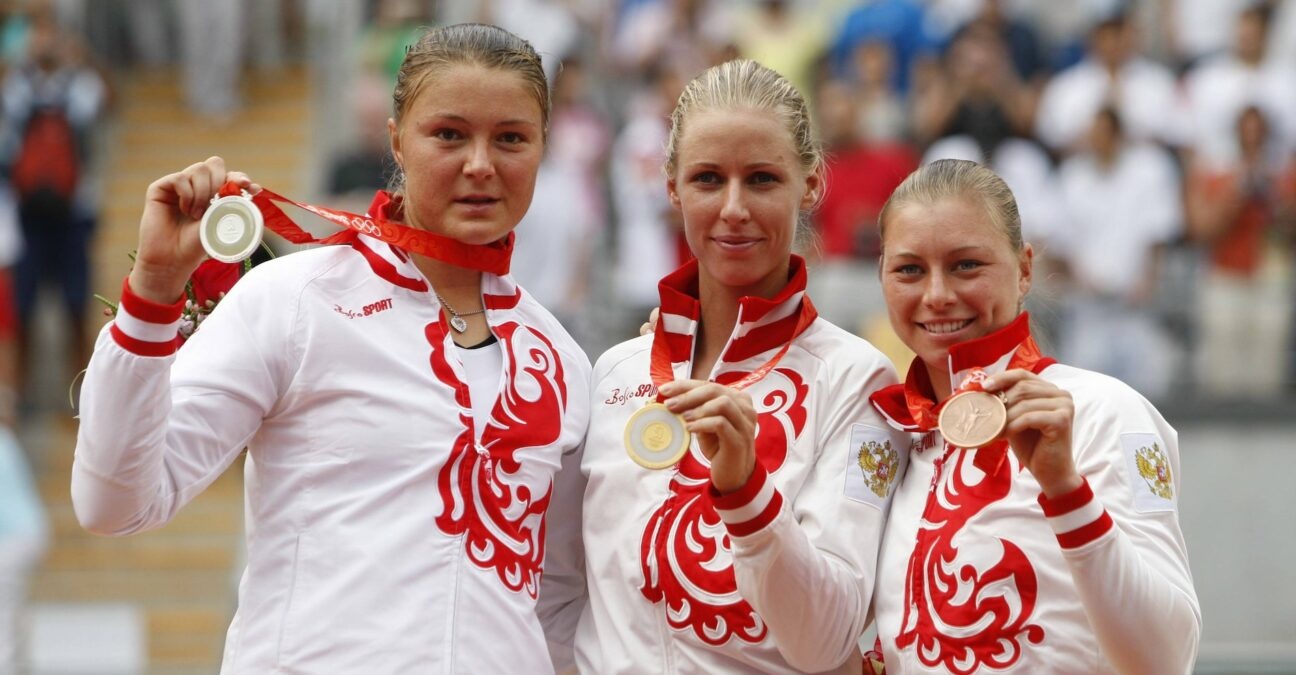 © Imago / Panoramic
© Imago / Panoramic
Elena Dementieva, the 2008 champion in Beijing, once explained to me why for Russians, the Olympics meant so much.
Ask the average person on the street in Moscow, she said, who won the French Open or the Australian Open and the chances are, they would look at you blankly. Ask them who won the Olympic gold medal and most of them would give you the name without hesitation.
Dementieva was one of many Russian tennis players who have put everything into the Olympics, winning the silver medal in Sydney in 2000 and then in 2008, upsetting the odds to win gold.
For all her success in tennis – Dementieva reached two Grand Slam finals and was a semi-finalist at all four, not to mention her 16 titles worldwide – the Olympics were the highlight of her career and would have been even if she had not won in Beijing.
As she said after her win in 2008: “I cannot even compare a Grand Slam and the Olympic Games because it’s just so much bigger”.
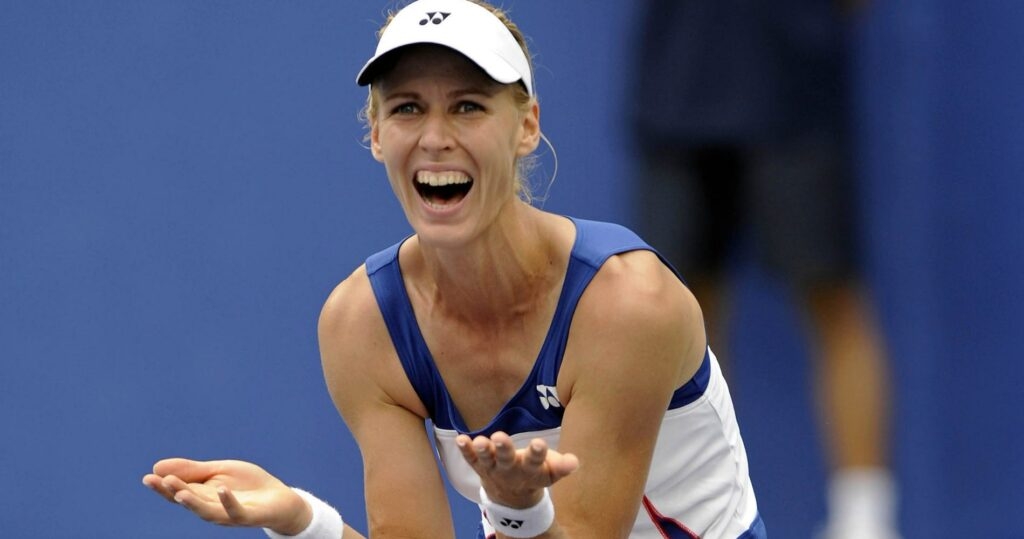
When tennis was readmitted into the Olympic fold in 1988, there were many players who decided not to play, thinking it did not deserve a place among the sports, who were largely, at least in name, still officially amateur at the time.
The growing professionalism of all sport in the past 30 years has changed perceptions and the list of singles champions includes some of the all-time greats, from Andre Agassi, Rafael Nadal and Andy Murray on the men’s side to Steffi Graf, Lindsay Davenport, Venus Williams, Justin Henin and Serena Williams on the women’s.
History and politics the key to motivation
But a closer look at the medalists since 1988 will also show how well players from Eastern Europe have performed. In total, 13 players from former Communist countries in Eastern Europe earned a place on the singles podium, while Yevgeny Kafelnikov and Dementieva both won the singles gold.
The reason for that has a lot to do with history and politics.
At the height of the Cold War, when Communist countries were looking for ways to outdo their western counterparts, sport became an important tool, a sign of status. Producing champions, from athletics to swimming, gymnastics to winter sports, was government policy.
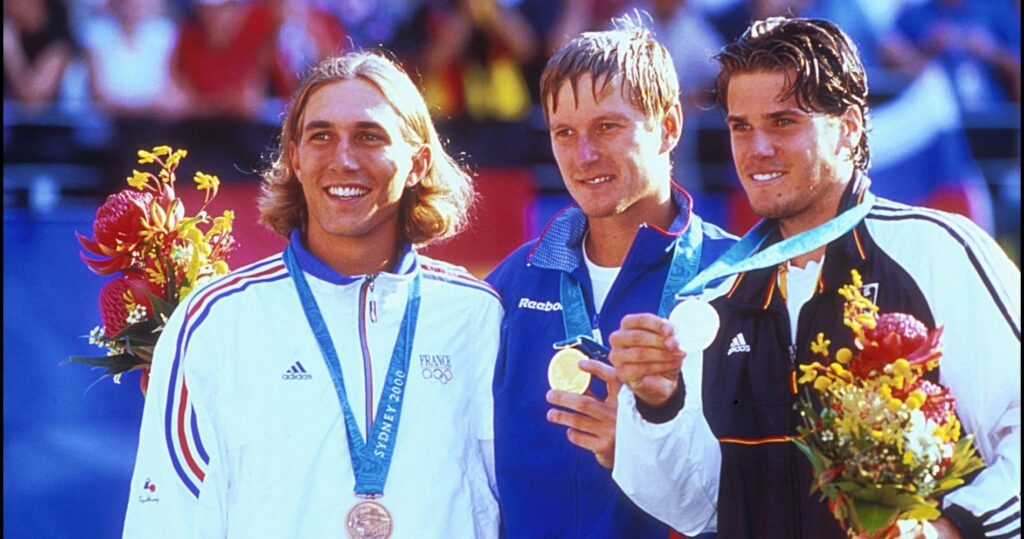
Realising that the Olympics was effectively a shop window to showcase their assumed superiority, eastern European countries invested hugely in Olympic sports, and by turn, in Olympic athletes. Winning a medal at the Olympics was a big deal and could mean a big deal too. Winners were often given huge rewards, by means of cars, even apartments. The incentive to do well was clear.
Of course, that national drive for success also saw many eastern European countries turn to the pharmaceutical industry for help, drugs in sport became more and more prevalent as they tried to outperform the United States.
Olympic win offers more status than Grand Slam title
The professional era (of Olympic sports) has changed a lot of things but for tennis players from those eastern European nations, the Olympics still holds more status than a Grand Slam title.
Take Jelena Ostapenko, whose French Open victory in 2017 was the first by any Latvian, man or woman in Grand Slam history. With every nation nominating one man and woman to carry their flag at this year’s Games, the 24-year-old performed the duty with pride on Friday.
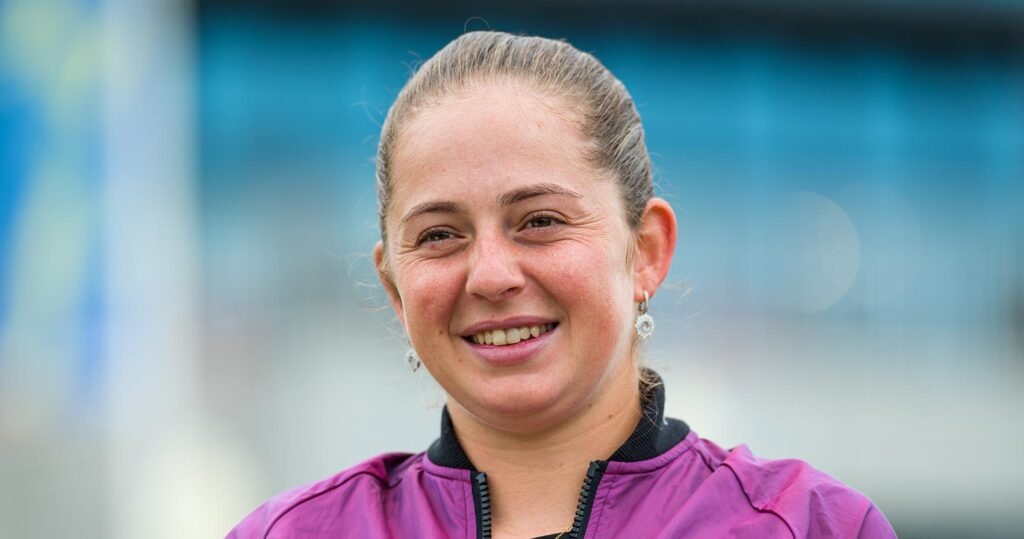
“I’m really, really happy to go to the Olympics,” Ostapenko said, before learning she would be carrying the flag. “I love to represent my country, as always. I’m playing Fed Cup since I was 15 years old, so I never missed one time.”
“On the flag, I have no idea what to say about it. I just saw the list of the participants who are going to be there for all sports, but I don’t know who they are going to choose. I think that you have probably time for it, but I don’t know. I mean, if I had a chance I would be really happy.”
Even in a pandemic, playing for their country is a big draw
The Tokyo Olympics is a unique beast, of course. Delayed for a year as the Coronavirus pandemic ripped across the world, it will be staged in front of empty stadiums even as the majority of Japanese people said in numerous surveys that the Games should not be held.
Some players have stayed away this year, for varying reasons. Few are injured, while others preferred to focus on regular tour events, citing the lack of ranking points and prize money. Others, like Nick Kyrgios, did not want to play the Olympics in a bubble, not the Olympic experience they grew up hearing about.
But listening to Novak Djokovic this week shows that the status of the Olympics remains undimmed, even for a multi-millionaire. The world No 1 is chasing a first Olympic gold, having won the bronze in 2008, and playing for his country remains something to be proud of.
“I met Blanka Vlasic (the high jumper) recently and she told me that in the future people won’t remember the conditions or whether there were people in the stands, but who has won medals,” he said this week. “Representing your country at the Olympics is a feeling like no other.”
For many, the Olympics is all in the genes
A large number of tennis players are also sons and daughters of Olympians, so the Games is in their genes. Stefanos Tsitsipas’ grandfather won a medal for the former Soviet Union in football in 1956, while Svetlana Kuznetsova’s mother was a world champion cyclist.
Iga Swiatek’s father competed in rowing for Poland at the 1988 Olympics in Seoul, South Korea, and grew up listening to his tales.
“I always remember my Dad saying stories,” she told the WTA website. “One of his experiences was when he was standing in line to get food and he was standing next to Steffi Graf and (Gabriela) Sabatini. So that was pretty cool.”
“It’s going to be nice playing with Poland on my T-shirt, but if I could win a medal, it would probably be the highlight of my career.”
Top players focused on winning medals in Tokyo
Elina Svitolina, who will try to win a medal for Ukraine, told ITF World why she was so focused on the Games. “For my country, Olympics is a big thing,” she said. “They really support you unbelievably when the athletes are competing in the Olympics, so it’s very special for Ukraine and I definitely will do my best to prepare to get that medal.”
Women’s No 3 Aryna Sabalenka is the leading hope for Belarus, and knows what success would mean. “I’m really happy to represent my country, my people and I want to do everything I can to make sure that Belarus is proud of me,” she told ITF World. “I want to represent my country as strong people who can fight through everything.”
“I’m looking forward for the Games, for the fight, for representing my country,” she added. “This is something unbelievable.”
Tennis players’ importance to their countries should also not be underestimated. Four carried their country’s flag at the opening ceremony in Tokyo; Petra Kvitova for the Czech Republic, Ostapenko for Latvia, Veronica Cepede Royg for Paraguay, and Yen-hsun Lu for Taiwan.
It is not just the former Communist countries who hold the Olympics up as a beacon. The traditional Olympic countries – Greece (the original hosts), Great Britain, France, Germany, Australia and the United States (tennis-aside) all invest heavily in Olympic sports.
Women’s world No 1 Ashleigh Barty, for one, can’t wait, and knows how much the Olympics mean to people back home.
“I think representing your country is the highest honour,” she told ITF World. “You’re playing for something bigger than yourself; you’re playing to make people proud, and that’s not just with the results, that’s with the attitude.”
